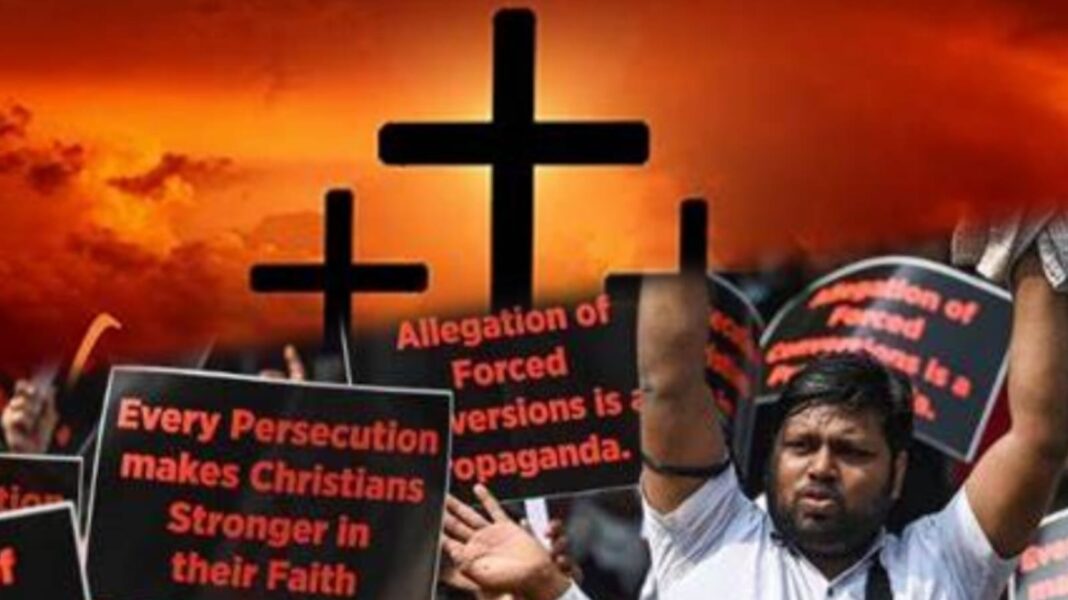~Bijoy A. Sangma
As India confronts the tensions between religious identity, civic freedom, and human dignity, the story of Good Friday offers more than a sacred ritual – it offers a lens to reimagine justice, courage, and co-existence in our time.
Nearly two thousand years ago, just outside the ancient city of Jerusalem, an innocent man was publicly executed. It was a day drenched in betrayal, fear, and political calculation. He was handed over by a trusted friend, condemned by a collusion of religious and political elites, denied by one of his closest followers, and ultimately abandoned by a crowd that once cheered his name. Stripped of dignity, bruised by violence, and draped in silence, he was nailed to a wooden cross and left to die between two criminals. That man was Jesus of Nazareth.
For Christians across the world, this day is remembered as Good Friday – a sacred, sobering commemoration not only of unimaginable suffering, but of a defiant, self-giving love that refused to retaliate. It is a day when heaven’s silence met earth’s injustice, when divine mercy bore the weight of human cruelty. But Good Friday is more than a page in Christian history or a ritual of mourning; it is a mirror to every age, every system, and every society that still crucifies truth in the name of order, and sacrifices the innocent to preserve the status quo.

In today’s India – a vibrant, pluralistic democracy founded on the promises of justice, liberty, and dignity – Good Friday speaks not just to believers, but to every citizen who dares to wrestle with the soul of the nation. It challenges us to confront the widening gap between the ideals enshrined in our Constitution and the lived realities of the marginalized, the unheard, and the unseen. It calls us to look beyond the ritual, and into the heart of our collective conscience – asking not merely what we worship, but what we truly value.
A Trial Without Justice
Good Friday is more than sacred history; it is a powerful reflection of political and legal
failure. Jesus was arrested under cover of night, denied a fair trial, charged falsely, and handed to Roman authorities by religious elites. The empire saw him as a threat; the powerful feared his influence. The manipulated crowd demanded his crucifixion.
This ancient tragedy finds disturbing echoes in our times. Citizens languish without trial,
dissent is criminalized, minorities are demonized – challenging the very Constitution that
promises equality and justice. Democratic institutions, designed to protect rights, sometimes fail the vulnerable.

The Indian Constitution guarantees freedom of religion. Yet rising hostility, attacks on places of worship, and harassment of minorities threaten the secular fabric. When prayer meetings are disrupted, churches vandalized, and believers attacked, the cross reminds us what happens when due process is denied and the innocent are vilified.
The Crowd and the Bystanders
Another chilling image of Good Friday is the crowd’s fickleness. Days after hailing Jesus as a saviour, they cry for his death. Pilate, the Roman governor, washes his hands – pretending neutrality while enabling injustice.
In India today, disinformation and manufactured outrage sway public opinion. Mob mentality often replaces law and reason. Too many choose silence over conscience.
To be a bystander amid injustice is not neutrality – it is complicity. Good Friday challenges us to reject apathy, to stand for truth, and to defend the voiceless. It calls all citizens – regardless of faith – to speak when rights are trampled.
The Power of Self-Giving Love
The crucified Christ does not embody worldly power, but radical humility. He responded to
hatred with forgiveness, to violence with peace. His love was not passive – it was courageous, healing, redemptive. The cross, paradoxically, became a symbol of hope. Christianity in India is often misunderstood – reduced to suspicion or stereotypes. But its heart is compassion, not conquest. Inspired by Christ’s life, Indian Christians have long served the nation – through schools, hospitals, orphanages, and social work.
This is not political strategy – it is spiritual conviction. In slums and villages, this ethic of love in action continues quietly. Amid rising polarization, this humble witness offers a powerful counter-narrative of dignity and care.
The Women Who Stayed
At the foot of the cross, when swords clashed and silence fell, when betrayal pierced the night and fear scattered the faithful, it was not the men but the women who remained. Mary, the mother of Jesus, Mary Magdalene, and a few others stood their ground – steadfast through horror, unwavering in grief. They did not flee the pain, they bore it. They did not shield their eyes, they witnessed. And in doing so, they became the first heralds of hope, the first to see the empty tomb, the first to believe that death would not have the final word.
Across India, women continue to serve as moral conscience. That same spirit of courageous
presence continues to breathe through the women of India today. From the sit-ins of Shaheen Bagh to the shattered communities of Manipur, from tribal mothers mourning their sons to daughters daring to speak truth to power, Indian women have become the moral conscience of our age. They grieve deeply, they resist boldly, and they organize with a resilience that both shames and inspires. Like the women at the cross, they remain when others retreat, hold ground when others surrender, and dream of resurrection even amid ruin.
These stories are not side notes to history – they are its spine. They remind us that
transformation often begins not with triumph, but with tears; not in noise, but in silent
endurance. In every act of presence amid pain, in every refusal to turn away from injustice,
these women become agents of healing and catalysts for change. In their witness, we find a living echo of Good Friday – a day not only of sorrow, but of steadfast hope.
Religious Freedom: A Constitutional Commitment
India’s founders, shaped by the trauma of Partition, enshrined religious freedom as a
foundational right. Article 25 guarantees the freedom to profess, practice, and propagate one’s faith. This was not mere tolerance, but a bold assertion of pluralism.
Today, that vision is under threat. Anti-conversion laws, suspicion of interfaith relationships,
and crackdowns on minority institutions create a climate of fear. When charity is labelled
coercion and prayer seen as provocation, India risks betraying its founding ideals.
Religious freedom is not a minority demand – it is a measure of the health of democracy. Good Friday asks: Can a nation be truly free if citizens must hide their faith?
The Shadow and the Light
Good Friday does not offer easy hope. It forces us to sit with grief, to name injustice, to
acknowledge complicity. This lament is necessary for transformation.
But the story doesn’t end at the cross. In Christian faith, resurrection follows crucifixion. Yet the risen Christ still bears scars – a reminder that healing does not erase pain, it redeems it.
India, too, must confront its wounds – communal violence, inequality, and declining
institutional trust. Healing begins with truth, not denial; with repentance, not rhetoric; with
reform, not triumphalism.
From Golgotha to Gandhi
Mahatma Gandhi, though not a Christian, deeply admired Jesus’s teachings. The Sermon on the Mount shaped his philosophy of nonviolence. For him, the cross symbolized moral courage – the strength to suffer without hatred, to confront injustice with love. That legacy must be reclaimed. India’s strength lies not in majoritarian power, but in its moral commitment to the weak, the diverse, and the voiceless.
As churches gather this Good Friday, let the message be clear: Injustice must not be
normalized. Faith must not be feared. Conscience must not be silenced.
The cross, raised on a hill outside Jerusalem, casts a long shadow across history. It asks each generation: Will you stand with the crucified – or with the crucifiers? Will you wash your hands – or bear witness?
This is not a question for Christians alone. It is a call to every Indian – to renew our shared
moral vision and live out the Constitution not just in law, but in spirit.
Good Friday is about death, yes – but more so, about dignity. In remembering the crucified
one, we are invited to reimagine the nation – not as a battlefield of identities, but as a sanctuary of justice, compassion, and truth.
(Bijoy A. Sangma is a development strategist and public affairs commentator with extensive experience in global leadership roles, contributing to thought leadership in public policy and social transformation. e-mail: [email protected])





